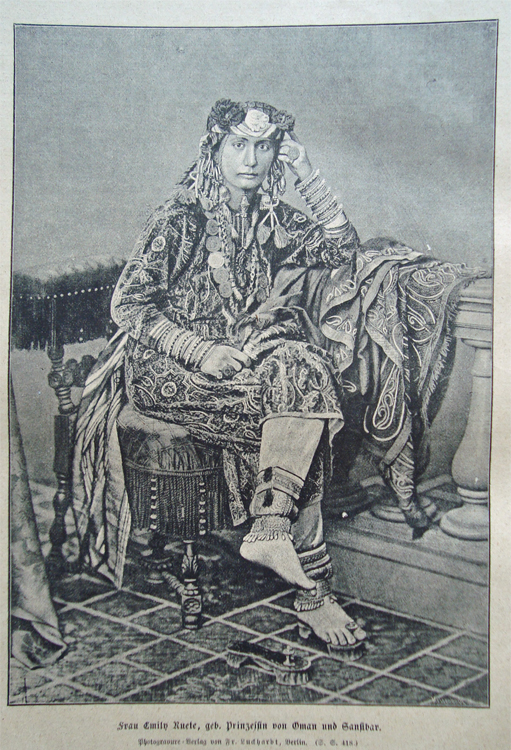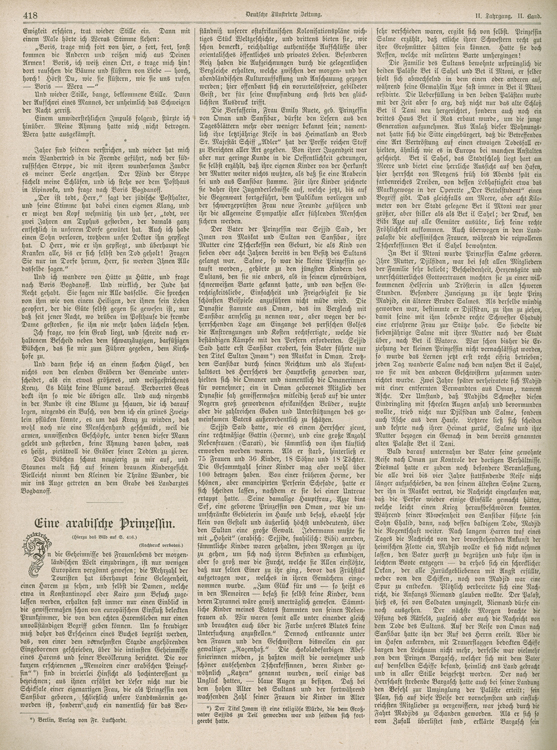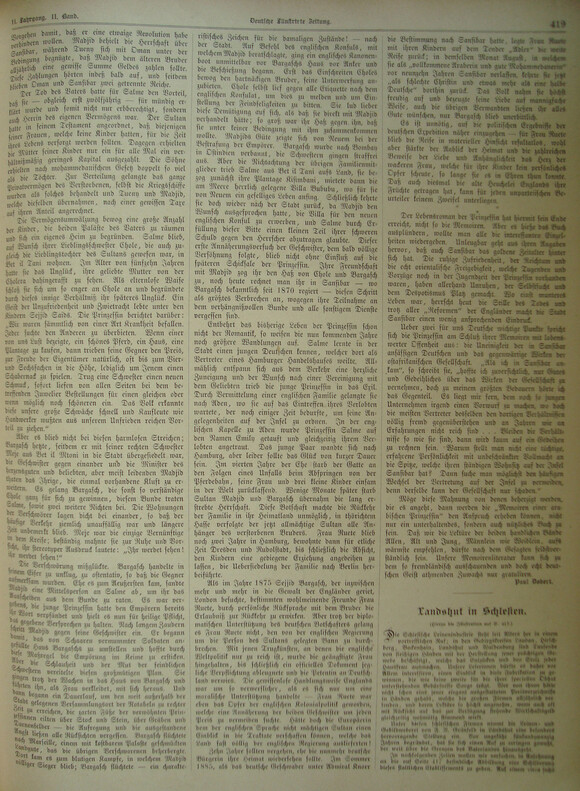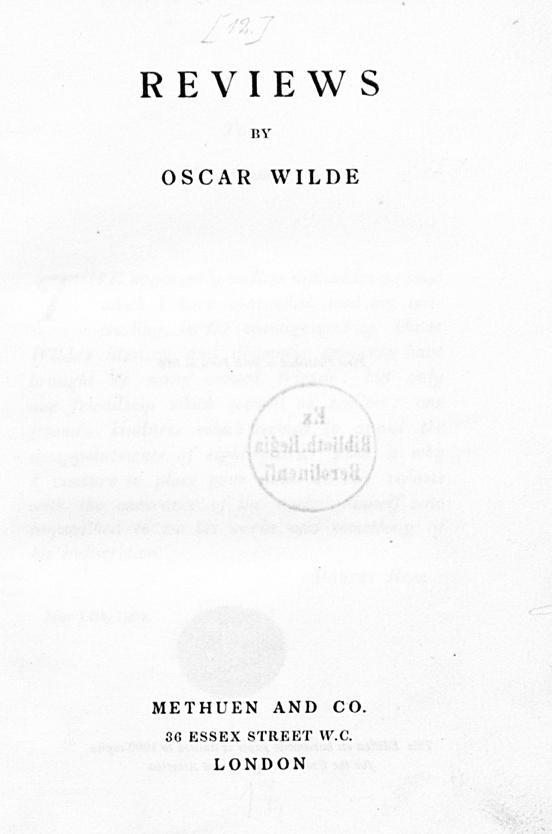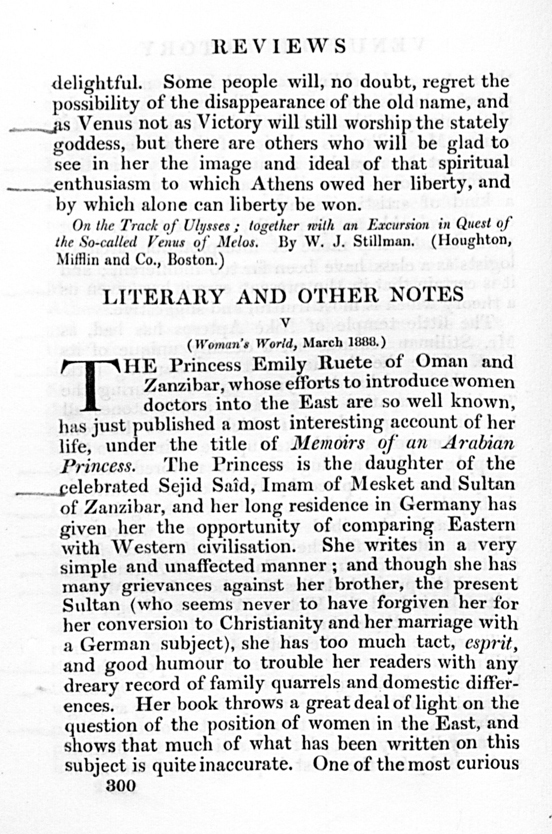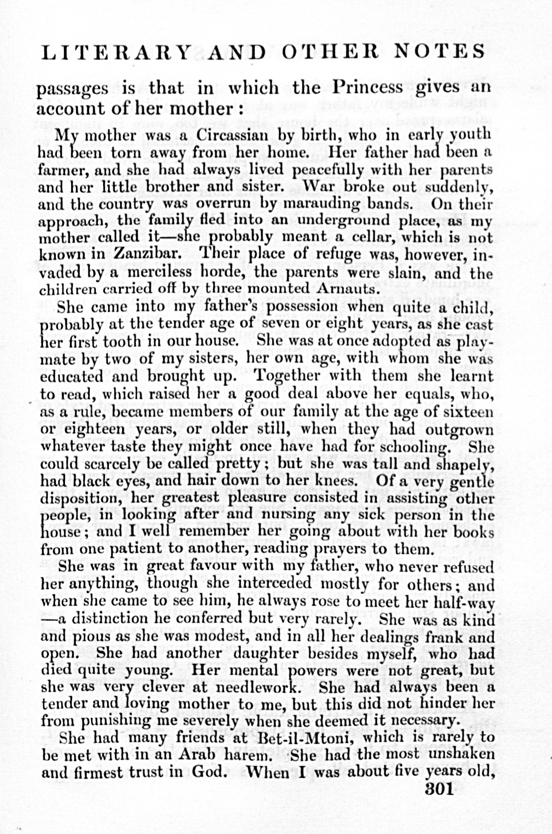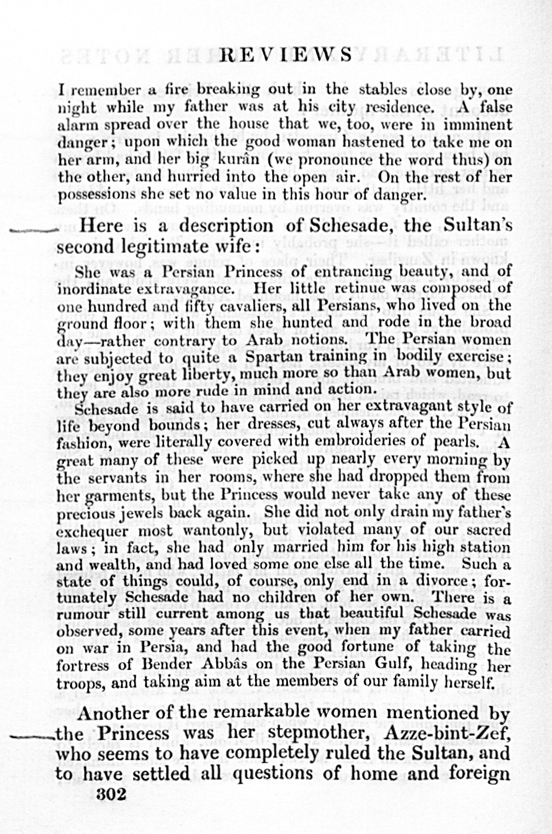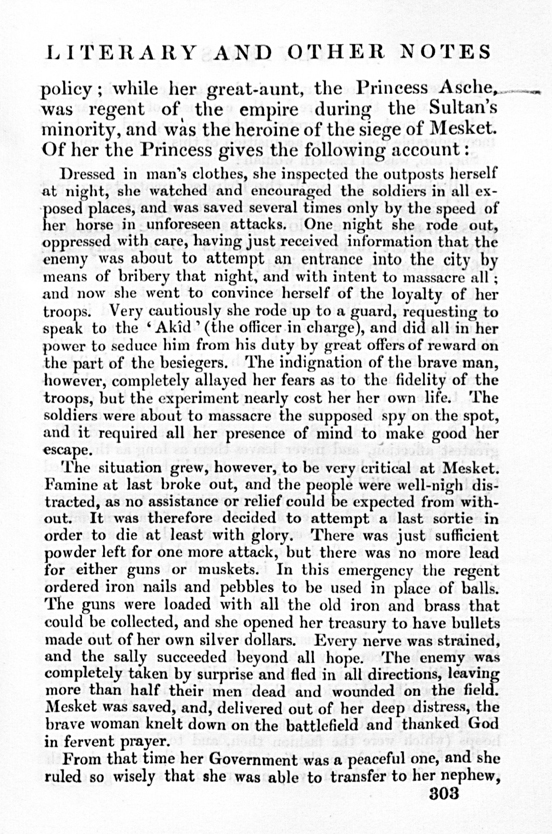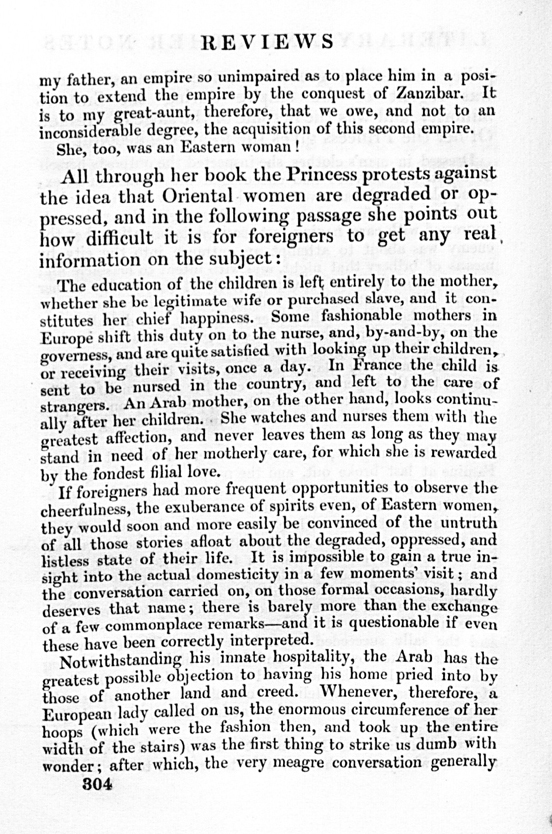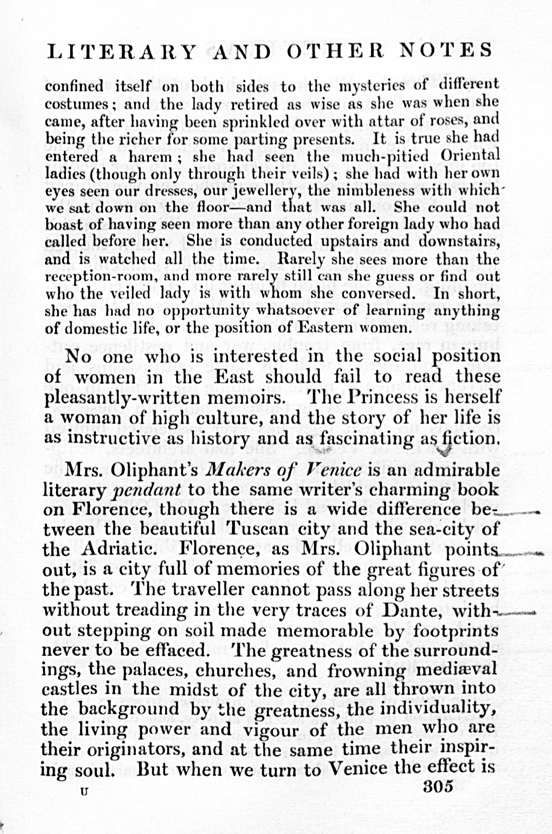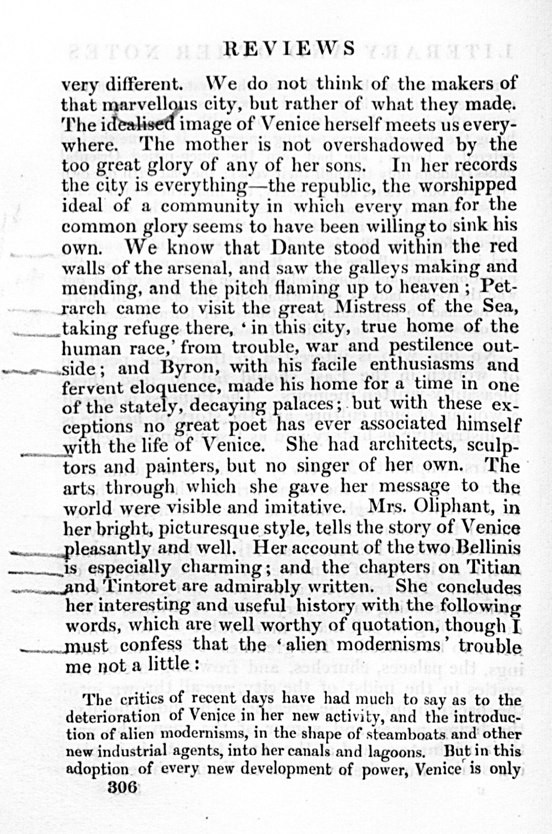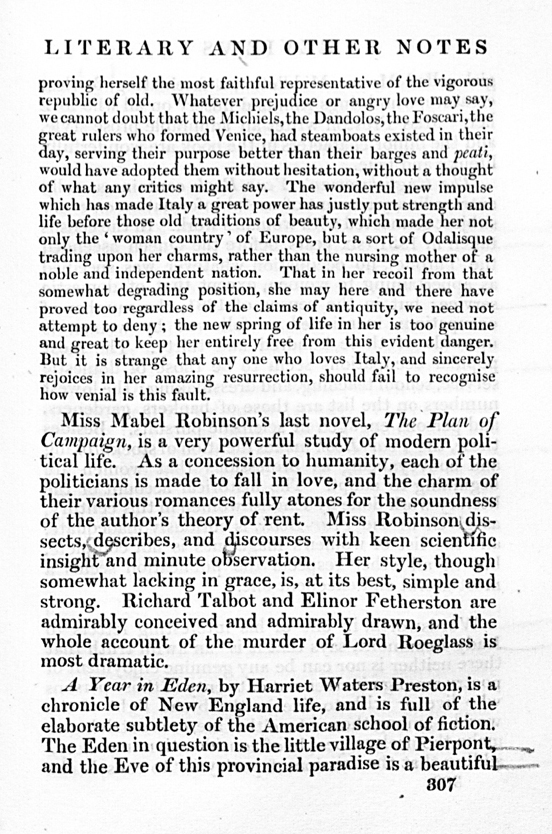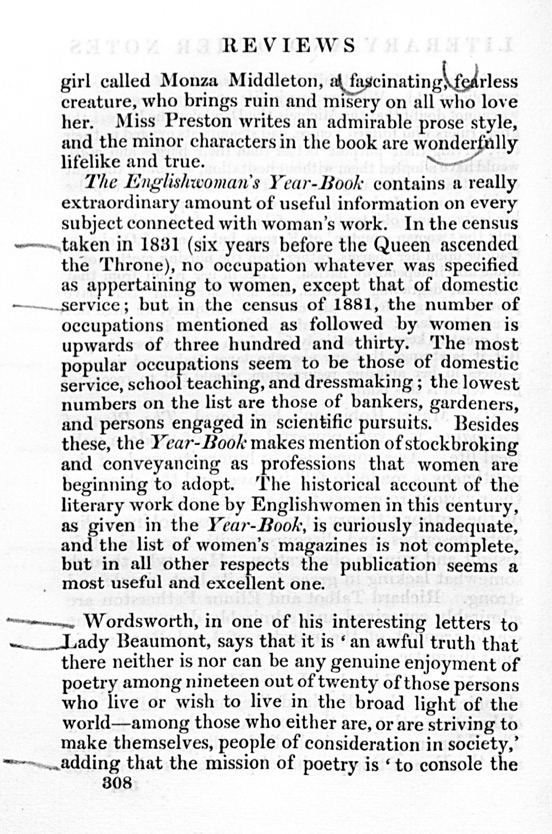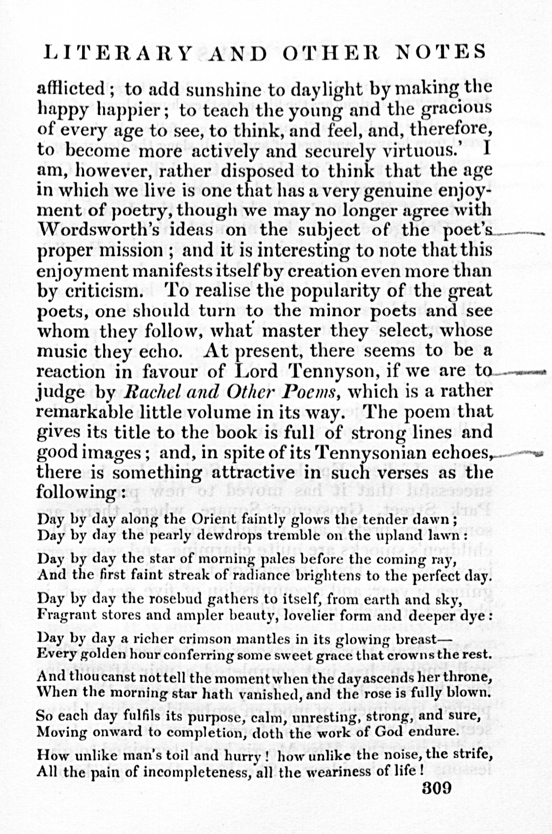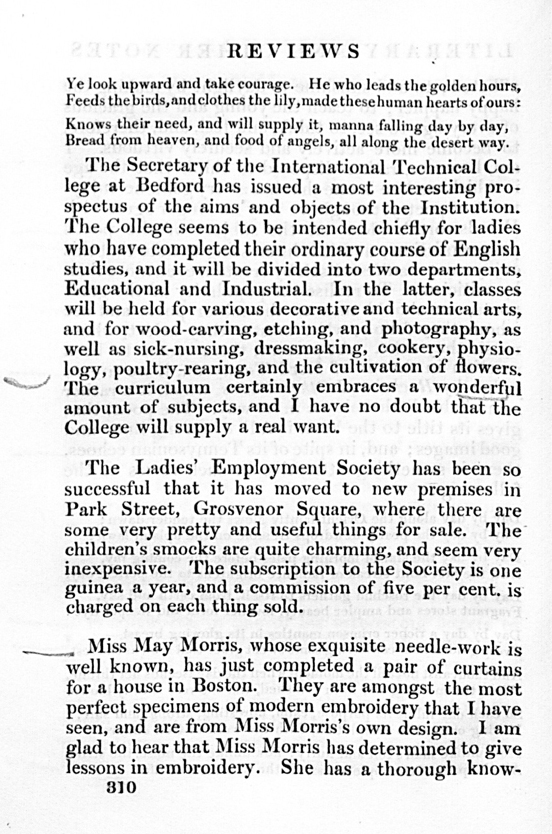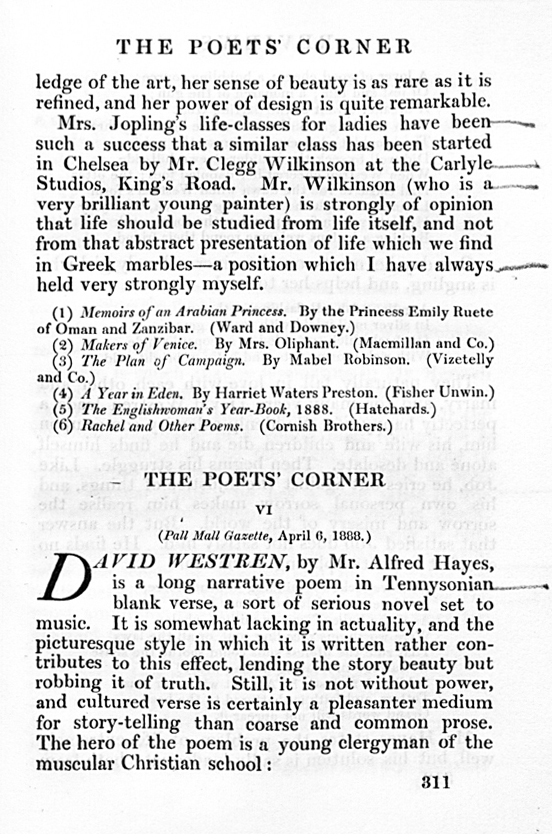The memoirs “could be termed most interesting in three respects: in them the reader learns not only of the fate of a singular woman, born a princess of Zanzibar and now our compatriot, but also of an aspect of world history notably important for the understanding of our plans for colonisation in East Africa. Thirdly they offer […] rich and authentic insights into public and private life in the Orient. The occasional comparisons drawn between oriental and occidental views and cultural concepts lend this record a particular charm; it represents the manifestation of an unprejudiced, educated mind, which always finds the happiest expression for its sentiments” (“Eine arabische Prinzessin”, p. 418).
Review of the “recently published ‘Memoirs of an Arabian Princess’” with an extensive summary of the contents. An interesting feature of this review is the fact that Dobert picks out (and praises) an aspect of the memoirs that is decidedly problematic from a contemporary perspective, but that comes strongly to the fore towards the end of their final chapter: good advice for German colonists. Described at the time as a “keen member” of the German Colonial Society in the review of the memoirs in the Society’s Kolonial-Zeitung [“Colonial Magazine”], Emily Ruete later expressed much more critical views on German colonialism in the “Postscript to My Memoirs.”
Image accompanying the review “An Arabian Princess” by Paul Dobert (p. 416).
The image, here attributed to the publishing house Friedrich Luckhardt, is the same as that forming the frontispiece of the memoirs and was taken in ca. 1868 in a Hamburg photographer’s studio.
Call number: Berlin State Library, 2° Ad 552/5
“We must not blame Frau Ruete for treasuring fond memories of her life as a princess: yes, many a German woman who is not condemned to go veiled and masked in the streets would perhaps find a life such as that in Zanzibar more entertaining than the one she herself leads with her coffee circles and soirées” (“Frauenleben in Sansibar”, p. 771).
This review presents a short summary of “everyday palace life” as narrated in the memoirs, but framed for the magazine’s German readers. It forms one of a series of similarly-themed short features in Die Gartenlaube’s “Blätter und Blüthen” [“Leaves and Blooms”] section (such as “Women in Persia”, “Women’s Dress in the Caucasus” and “A Woman’s Life in Constantinople”).
Call number: Berlin State Library, 4° Ac 7218
“Her book throws a great deal of light on the question of the position of women in the East, and shows that much of what has been written on this subject is quite inaccurate. [...] No one who is interested in the social position of women in the East should fail to read these pleasantly-written memoirs. The Princess is herself a woman of high culture, and the story of her life is as instructive as history and as fascinating as fiction.” (“Literary and Other Notes V”, pp. 300 and 305)
Oscar Wilde was the editor of the Victorian women’s magazine The Woman’s World from 1887 to 1889, regularly contributing “literary notes” and reviews. It was in this context that his 1888 review of Emily Ruete’s memoirs appeared – the memoirs themselves had been published in English translation for the first time that same year. With the help of long quotes from Ruete’s own text relating to various “remarkable” women, Wilde focuses on the question of women’s rights, stressing that “[a]ll through her book the Princess protests against the idea that Oriental women are degraded or oppressed” (“Literary and Other Notes V”, pp. 302 and 304)
Call number: Berlin State Library, Ak 7580
